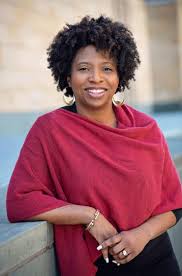
Arthur F Thurnau Professor
Professor of Education
Director of Wolverine Pathways
The Institute has emerged from the Race and Social Justice Speaker Series at the right time to meet the Black Lives Matter movement and this historical moment. I look forward to the Institute taking on greater significance within the Department of Educational Studies as the demands for educational justice grows among a new generation pursuing doctoral studies.
Growing from the Race and Social Justice Speaker Series
The ROOTS
The Race and Social Justice Institute is the outgrowth of the Race and Social Justice Speaker Series and the Race and Educational Inequities Professional Development Seminar (REIPDS), designed by Dr. Carla O’Connor in her role as Associate Dean of Graduate Studies. The speaker series started in 2014 and has since featured prominent voices in educational justice, including Pedro Noguera, Gloria Ladson-Billings, Stephen Quaye, Danny B. Martin, Michael Dumas, Lori Patton-Davis, and Dorinda J. Carter, to name a few. Talks by these eminent scholars were followed by an informal dinner with doctoral studies in the evening, and workshops over lunch on the following day. These events provided professional guidance for developing scholars centering issues of race and social justice, networking opportunities with senior scholars, and critical intellectual and discursive opportunities. The speaker series and workshops were extended through small grants for faculty and students to fund research and teaching related to race and social justice.
THE INSTITUTE
In the Summer of 2019, the Race and Social Justice Speaker series and REIPDS were reconfigured as a single, three-day intensive to center the importance of social justice in the doctoral program. This intensive was targeted as a space to introduce first-year doctoral students to the foundational commitments of the Educational Studies Department and provide a primer for students who have not been exposed to the intellectual ground of race and social justice within the U.S. education systems. To grapple with these issues, the intensive included a variety of activities: talks, panel discussion, interactive, experience-based workshops, arts-based workshops, and traditional seminars.
Now, in the fall of 2020, the Institute is taking shape around the demands of the COVID-19 pandemic offering a set of online learning experiences that open portals for new educational futures centered on justice: racial, economic, environmental, and gender & sexual.
THE FUNDING
The Institute is funded through the Rackham Faculty Allies Grant, the School of Education dije Office, and the Department of Educational Studies of the School of Education.
“When I dare to be powerful, to use my strength in the service of my vision, then it becomes less and less important whether I am afraid.”
― Audre Lorde